Baobab Group
Members
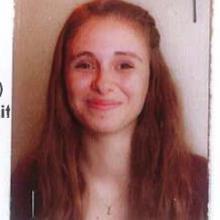
Doctorante
INRIA
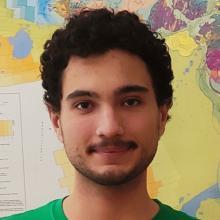
Doctorant
UCBL
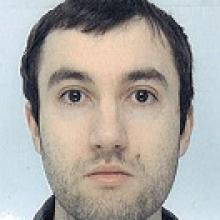
Ingénieur de recherche
INRIA
Tel: 04 72 44 81 42
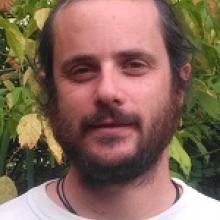
Maître de conférences
UCBL
Tel: 33 04 72 43 15 52

Maître de conférences
UCBL
Tel: 04 72 43 15 52
Technicienne
INRIA
Tel: 04 72 44 81 54

Professeur des universités
UCBL
Tel: 04 72 44 81 42

Directrice de recherche
INRIA
Tel: 33 04 72 44 82 38
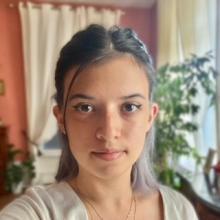
Doctorante
UCBL
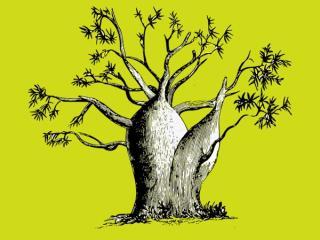
Baobab is a French research team of the Laboratoire de Biométrie et Biologie Évolutive, and at the same time represents the core of a European research team of Inria called Erable. Besides the members of Baobab, Erable has thus members in three institutions in Italy (Sapienza University of Rome, Luiss University, and University of Pisa) and two institutions in the Netherlands (CWI and Free University of Amsterdam).
Baobab has two main sets of research goals that currently cover four axes:
-
Goals:
-
The first is related to the original areas of expertise of the team, namely combinatorial and statistical modelling and algorithms, although more recently the team has also been joined by members that come from biology including experimental.
-
The second set of goals concern its main Life Science interest which is to better understand interactions between living systems and their environment. This includes close and often persistent interactions between two living systems (symbiosis), interactions between living systems and viruses, and interactions between living systems and chemical compounds.
-
-
Axes:
-
(pan)genomics and transcriptomics in general,
-
metabolism and (post)transcriptional regulation,
-
(co)evolution
-
health in general, of living systems and environmental.
-
A longer objective of the team is to become able in some cases to suggest the means of controlling for or of re-establishing equilibrium in an interacting community by acting on its environment or on its players, how they play and who plays.
Two major steps are constantly involved in the research done by the team: a first one of modelling (i.e. translating) a Life Science problem into a mathematical one, and a second of algorithm analysis and design. The algorithms developed are then applied to the questions of interest in Life Science using data from the literature or from collaborators. More recently, thanks to the recruitment of young researchers (PhD students and postdocs) in biology, the team has become able to start doing experiments and producing data or validating some of the results obtained on its own.
From a methodological point of view, the main characteristic of the team is to consider that, once a model is selected, the algorithms to explore such model should, whenever possible, be exact in the answer provided as well as exhaustive when more than one exists for a more accurate interpretation of the results. More recently, the team has become interested in exploring the interface between exact algorithms on one hand, and probabilistic or statistical ones on the other such as used in machine learning approaches. More in particular, the team is interested in investigating an area of research called “interpretable machine learning” that has been developing more recently and its potential relations with exact, combinatorial approaches.
Besides being at the core of a European team, Baobab has a number of other collaborations at the international level.
Baobab is also strongly involved in teaching at the University of Lyon and Insa-Lyon, well as in other research institutions in Europe, directly or through the members of Erable that are not in France.
For more information, you may also visit the site of the Inria team Erable here: http://team.inria.fr/erable/en/.
Publications
Display of 301 to 309 publications on 309 in total
Promoter sequences and algorithmical methods for identifying them
Research in Microbiology . 150 : 779-799
Journal article
see the publicationIdentifying satellites and periodic repetitions in biological sequences
Journal of Computational Biology . 5 : 539-554
Journal article
see the publicationSpelling Approximate Repeated or Common Motifs Using a Suffix Tree
incollection . 1380 : 374-390
Journal article
see the publicationFlexible Identification of Structural Objects in Nucleic Acid Sequences: Palindromes Mirror Repeats Pseudoknots and Triple Helices
Annual Symposium on Combinatorial Pattern Matching (CPM) . 1264 : 224-246
Conference paper
see the publicationMultiple sequence comparison - A peptide matching approach
Theoretical Computer Science . 180 ( 1-2 ) : 115--137
Journal article
see the publicationA Double Combinatorial Approach to Discovering Patterns in Biological Sequences
incollection . 1075 : 186-208
Journal article
see the publicationSearching for repeated words in a text allowing for mismatches and gaps
incollection . -- : 87-100
Journal article
see the publicationFinding flexible patterns in a text - An application to 3D matching
Computer Applications in the Biosciences . 11 : 59-70
Journal article
see the publicationMultiple Sequence Comparison:A Peptide Matching Approach
incollection . 937 : 366-385
Journal article
see the publication